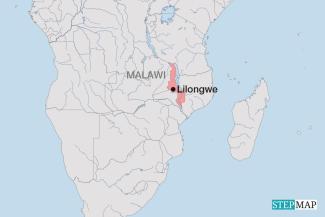Gender-based violence
How Malawi is protecting disabled persons from sexual abuse

Several factors account for the complexity of this problem. Firstly, most of the abuse has been reported to be perpetrated by close family relatives. This makes it hard for such cases to be brought to the attention of law enforcement agencies. Secondly, victims often cannot stand as trusted witnesses.
Loveness Micheal, a mother of a 12-year-old disabled daughter, says that “the problem is that most of these girls with disabilities are sexually and physically abused by the very people who are supposed to protect them.” She adds that family and community members do not want to report cases of this nature to the police, let alone the media because of fear that if the perpetrator is arrested and jailed there will be backlash.
Emily Maunde-Mwasinga, a secretary for the Parents of Disabled Children Association of Malawi (PODCAM) agrees that the number of girls who are physically, sexually and emotionally abused in the country is on the rise. “We may not have the exact figures, but we receive reports of girls with disabilities being abused almost every month. And the perpetrators are most often not taken to court,” she says.
In some cases, the victims are accused by family members of telling lies. They are therefore less inclined to report such cases. “The victims are looked at with scepticism. Everyone thinks that they cannot give trusted evidence,” Emily says.
Harriet Kachimanga, a public-relations officer at the Malawi Council for the Handicapped (Macoha) says that “usually, it is girls with visual and speech impairments that are going through this kind of abuse. However, for most cases, the actual perpetrators are not known, but suspects who are believed to be family members enjoy the protection from other family members and the community,” she says. She believes that raising awareness about the dangers of protecting perpetrators and ways of recognising sexual abuse can help “as most girls with disabilities cannot identify abuse or mistake it for love and affection from family members and in cases where it is recognised, they do not know where to report.”
To help curb the vice, the Malawian government is investing in community awareness programmes targeting traditional leaders and families with members with disabilities. “The more community members and families are empowered, we believe, the more they become proactive in observing and reporting human-rights violation cases,” says Pauline Kaude, public-relations officer at the Ministry of Gender, Children, Disability and Social Welfare.
Raphael Mweninguwe is a freelance journalist based in Malawi.
raphael.mweninguwe@hotmail.com













